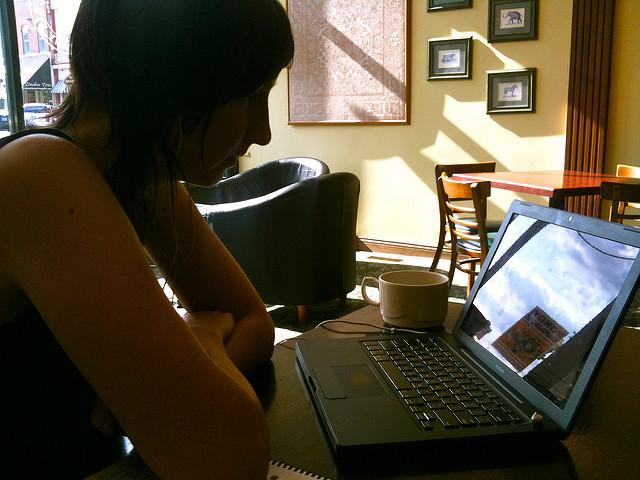
Hate ordering a coffee and a scone, laptop in tow, only to find out that all the good tables next to the outlets are taken? Coworking spaces seem to be the affordable solution. Upscale urban restaurants –looking to make money during morning and afternoon off-hours — have started partnering with coworking startups to provide affordable workspaces with power strips, fast wifi, and bottomless coffee and tea. In a recent Vox article, Gaby DelValle calls upon the work of sociologist Dalton Conley to describe this latest trend in ‘weisure.’
“In his 2009 book Elsewhere, USA, Princeton University sociologist Dalton Conley referred to this as ‘weisure,’ or the merging of work and leisure. This breakdown of the boundary between labor and enjoyment, Conley wrote, is ultimately destructive, even if it’s disguised as a boon for both employee and employer.”
Coworking spaces, like Spacious in New York City, are expanding as more workers turn to freelancing or telecommuting. Having the freedom to work from anywhere may eliminate some of the role conflict experienced by people trying to juggle work, family, and their social life, but it also means they need a place to work from. Many workers find coworking spaces preferable to coffee shops because of the amenities and the camaraderie of working among other people. Yet, Conley explains, the shift to coworking also has less desirable consequences.
“This work-and-play blurring ends up enhancing [their] sense of alienation,” he wrote. “It’s not just that they feel like they need to be working when they are ostensibly supposed to be having fun or, conversely, that they should stop working and be there for their kids, spouse, or friends. It’s not just that [they] need to be everywhere at once. It’s that once disparate spheres have now collided and interpenetrated each other, creating a sense of ‘elsewhere’ at all time. … Home is more like work and work is more like home and the private and public spheres are indistinguishable from each other.”
As Conley explains, coworking is part of a larger trend of blurring distinctions in the social world: home–office, work–leisure, public–private, and even self–other. The result for many is a sense of alienation: No matter where we are, we’re always wondering where we should be and where we need to be. When we participate in ‘weisure,’ we feel that we should be ‘elsewhere.’

Comments 5
JessieinLove — March 28, 2019
Surely agree, i'm also working from home, cause i've got essay writing job, and the hardest part - to separate work from your free time. The only option i've found for myself - is to build a schedule that is appropriate for you.
malton Pence — August 14, 2020
great content I just love it write my assignment online check it out.
Felix Dertbas — April 30, 2021
Of course, having a job that you love makes working a leisure time that you're getting paid for. For me it's SEO, and ever since I've found NaturalLinks blog I've been steadily learning and improving my SEO skills to become a desirable specialists. I'm confident that anyone can learn the basics of search engine optimization if they use sources like this and take their time learning.
Emma — March 31, 2023
Each of us needs rest. Therefore, it is very important to find time for this between work and study. If the tasks that you need to do yourself, and there are those that can be delegated. This service https://writemypapers.me/ always helps me with this.
Emilia — April 18, 2024
To write a resume correctly, you may not want to list all of your jobs. Remember that the ideal length for a resume is two pages, so space is limited. You can find a lot of valuable information about this on the site gotresumebuilder. A recruiter doesn't need to know about your grocery store job at 18 if you're applying for a finance position.